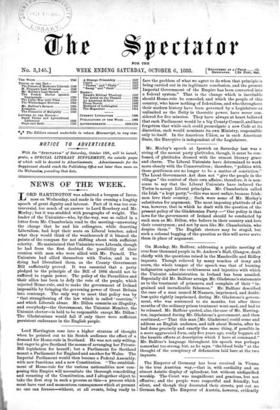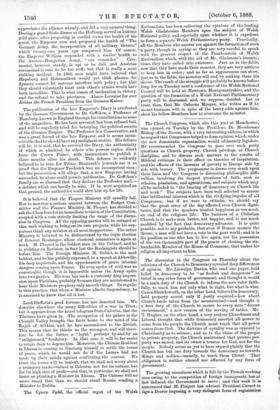The Emperor of Germany has been received in Vienna in
the true Austrian way,—that is, with cordiality and an almost Asiatic display of splendour, but without undignified worship. The Court was magnificent and gracious, but not effusive; and the people were respectful and friendly, but silent, and though they decorated their streets, put out no German flags. The Emperor of Austria, however, evidently appreciates the alliance warmly, and did a very unusual thing. During a grand State dinner at the Hofburg, served on historic gold plate, after proposing in cordial terms the health of his guest, the Emperor rose and proposed the health of "The German Army, the incorporation of all military virtues," which twenty-two years ago conquered him. Of course, the Emperor William responded with a similar health to the Austro - Hungarian Army, " our comrades." Cere- monial, however stately, is apt to be dull, and Austrian ceremonial is sure to be too stiff; but that is really a most striking incident. In 1866, men might have believed that Hapsburg and Hohenzollern would yet clink glasses, for dynasts cannot let rancour interfere with policy ; but that they should voluntarily toast each other's armies would have been incredible. That is what comes of moderation in victory, and the refusal to take provinces. Alsace-Lorraine for ever divides the French President from the German Kaiser.



































